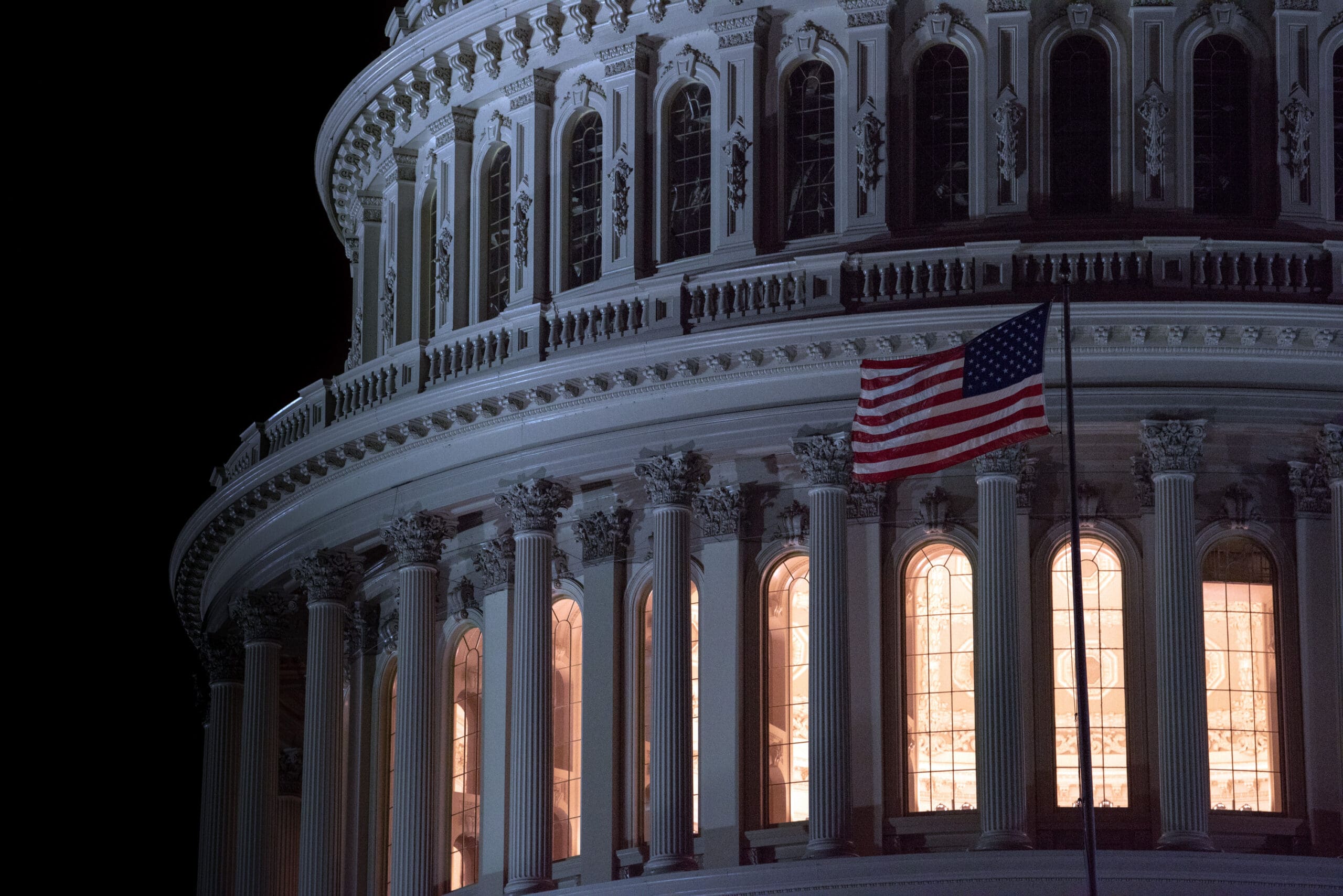SCOTUS Says Doctrine Flouts APA, Dissent Accuses Colleagues of ‘Judicial Hubris’
“Today, the Court places a tombstone on Chevron no one can miss.” – Justice Gorsuch, concurring
The U.S. Supreme Court today issued its opinion in Loper Bright Enterprises v. Raimondo, overruling the Court’s seminal case on administrative agency deference, Chevron U. S. A. Inc. v. Natural Resources Defense Council, Inc. Chief Justice Roberts delivered the opinion of the Court and Justices Kagan, Sotomayor and Jackson dissented.
In the 1984 ruling in Chevron, U.S.A., Inc. v. Natural Resources Defense Council, Inc., the Court held that a court “may not substitute its own construction of a statutory provision for a reasonable interpretation made by [the agency charged with administering the statute],” where the statute is ambiguous. The decision established a two-step test in which a court must first “assess whether the statutory language is ‘clear’ and, if so, give effect to the clear terms” and “if the statutory language is ‘silent or ambiguous,’ then—at step two—a court is prohibited from resolving the legal question itself as it would in any other case, and instead must defer to the agency’s interpretation.”
But today’s opinion held that “courts may not defer to an agency interpretation of the law simply because a statute is ambiguous,” thereby definitively overruling Chevron.
The ruling is not a surprise. In January of this year, oral arguments in the two cases that were granted challenging Chevron saw conservative justices’ questioning leaning largely in favor of scrapping the doctrine, while Justices Kagan, Sotomayor and Jackson pushed back on the petitioners’ arguments, predicting chaos, and the U.S. Solicitor General said overruling such a foundational doctrine would result in “endless litigation.”
A group of herring fishermen first petitioned the High Court in November 2022 asking the Court to consider: 1) whether the Magnuson-Stevens Act (MSA), which governs fishery management in federal waters and says that the National Marine Fisheries Service (NMFS) can require vessels to carry federal observers onboard to enforce the agency’s regulations, also authorizes the NMFS to require that the vessels pay the salaries of those monitors; and 2) whether the Court should overrule Chevron. The Court ultimately granted the petition limited to question 2.
The fishermen argued in their opening brief that ever since the Chevron decision, “judges, litigants, and scholars have struggled not only to apply Chevron, but to reconcile it with the Constitution, the Administrative Procedure Act (APA), and the historical record.” While it is on the books, the brief argued, administrative agencies will continue to abuse their power.
Then, in October 2023, the Court added another case to its docket challenging Chevron, explaining that it would hear Relentless, Inc. v. Dept. of Commerce in tandem with the Loper Bright case, since the two were almost identical.
About 60 amicus briefs were filed in the Loper Bright case. In one joint brief filed by Patent and Trademark Attorneys, Agents, and Applicants for Restoration and Maintenance of Integrity in Government (PTAAARMIGAN) and US Inventor in support of neither party, the amici asked the Court to reaffirm Chevron deference but to clarify that it should only apply “when an agency acts within the substantive and procedural limits set by Congress.”
The brief argued that the U.S. Patent and Trademark Office (USPTO) often “promulgates regulations without the public participation and vetting required by the Administrative Procedure Act, Paperwork Reduction Act, 44 U.S.C. § 3501 et seq., and Regulatory Flexibility Act, 5 U.S.C. § 601 et seq.” Furthermore, when the Office has been challenged in the past on such moves, the agency uses Chevron as a cover, it said. “The USPTO’s neglect of rulemaking procedure leads to regulatory costs that exceed $ 1 billion per year,” added the brief, citing an article by the brief’s author, David Boundy of Potomac Law Group.
Today’s opinion said that Chevron has not been the kind of stable rule required for courts to say what the law is but instead called it an “impediment” and “a judicial invention that required judges to disregard their statutory duties.” The Court said that the doctrine cannot be squared with the Administrative Procedures Act (APA), which “specifies that courts, not agencies, will decide ‘all relevant questions of law’ arising on review of agency action, §706 (emphasis added)—even those involving ambiguous laws—and set aside any such action inconsistent with the law as they interpret it.”
In a concurring opinion written “to address why the proper application of the doctrine of stare decisis supports that course,” Justice Gorsuch said “[t]oday, the Court places a tombstone on Chevron no one can miss.”
In her dissent, Justice Kagan said the majority’s opinion “flips the script,” and that now a “rule of judicial humility gives way to a rule of judicial hubris.”
IPWatchdog Founder and CEO said that Chevron was a “recipe for disaster” and that overruling it was the right move, but it is far from a sure thing that anything will change going forward. He explained:
“As reasonable as the premise behind Chevron once was— namely to give front line agencies latitude to carry forward their mission— experience has demonstrated that agencies often abuse authority and seek to claim every opportunity to do whatever they wanted to do regardless of what Congress, the Judiciary, and basic concepts of checks and balances. In a nutshell, Chevron allowed agencies to fill the void abdicated by Congress and a Judiciary all too willing to refuse to engage in oversight. This was a recipe for disaster because too many agencies are controlled by political operatives and believers who are willing to allow the ends to justify the means, and willing to take every opportunity to expand their own power. Ultimately, Chevron provided cover for truly arbitrary and capricious decisions. The Administrative State will likely not go quietly into the night, so as important as this decision can be, the real question will be whether anything changes at all. If things do change as envisioned by this decision, much more will be required of Congress and the courts, and the petty political in-fighting and refusal to accomplish anything out of a fear of a primary challenger will need to be curtailed.”
As far as the impact of the decision on the cases at hand, Meredith Moore, Director of Ocean Conservancy’s Fish Conservation Program, issued the following statement:
“Today, the Supreme Court clearly showed that this case was never just about fish. Instead, New England’s Atlantic herring fishery was used as a Trojan Horse to attack the foundations of good governance and resource management. The protections that keep our air and water clean, our homes and workplaces safe, and our communities, our children and ourselves healthy rely on the knowledge and experience of scientists and experts, and all that is now at risk.
“Decades ago, American fisheries were on the brink of collapse, and what made recovery possible – what kept fishing communities in business and seafood on American dining room tables – was strong science-based management decisions rooted in data. This case jeopardizes our access to critical information about America’s fisheries, which is the exact opposite of what we need to handle the fast-growing impacts of climate change.
“The Supreme Court’s decision opens the floodgates to litigation that will erode critical protections for people and the environment.”
Image Source: Deposit Photos
Author: jlueders
Image ID: 6528683






